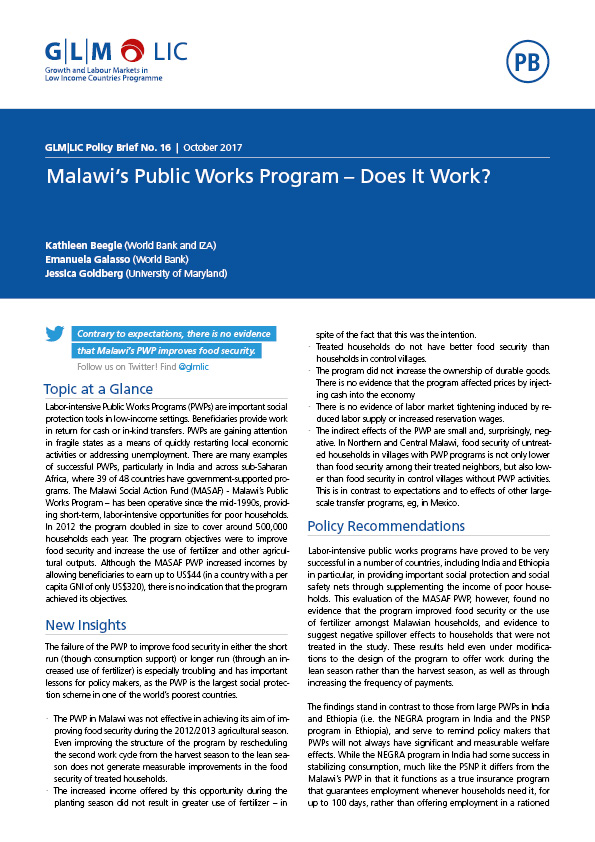Labor-intensive Public Works Programs (PWPs) are important social protection tools in low-income settings. Beneficiaries provide work in return for cash or in-kind transfers. PWPs are gaining attention in fragile states as a means of quickly restarting local economic activities or addressing unemployment. There are many examples of successful PWPs, particularly in India and across sub-Saharan Africa, where 39 of 48 countries have government-supported programs. The Malawi Social Action Fund (MASAF) – Malawi’s Public Works Program – has been operative since the mid-1990s, providing short-term, labor-intensive opportunities for poor households. In 2012 the program doubled in size to cover around 500,000 households each year. The program objectives were to improve food security and increase the use of fertilizer and other agricultural outputs. Although the MASAF PWP increased incomes by allowing beneficiaries to earn up to US$44 (in a country with a per capita GNI of only US$320), there is no indication that the program achieved its objectives.
